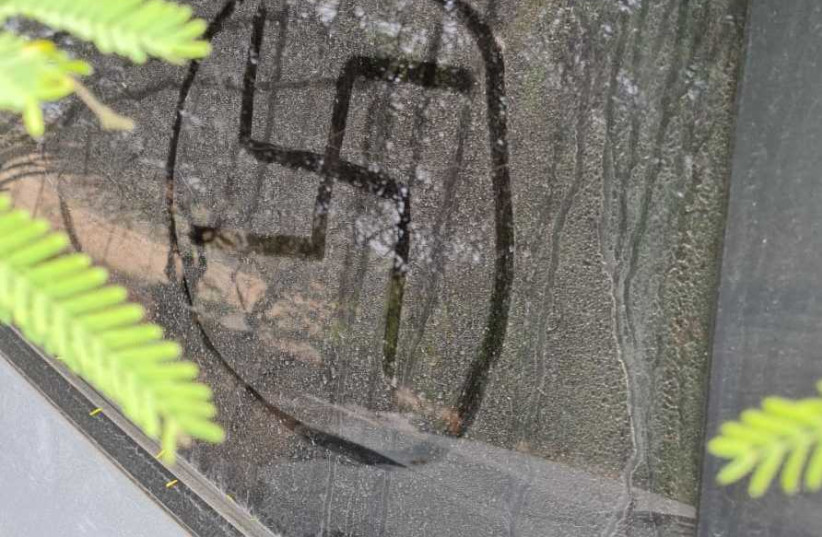An Australian federal court has overturned the dismissal of the pro-Iranian regime and anti-Israel academic Tim Anderson, who was fired for inserting a swastika in the middle of an Israeli flag, because it said his activity was an expression of free speech.
The Sydney Morning Herald reported in late August that Anderson’s, who was employed by the University of Sydney, was, according to the judges, “an expression of a legitimate view, open to debate, about the relative morality of the actions of Israel and Palestinian people.”
In 2019, Australia became the 33rd member of the International Holocaust Remembrance Alliance to adopt the organization's contemporary definition of antisemitism. The IHRA definition defines comparisons between Nazi Germany and Israel as antisemitic but the IHRA definition is not legally binding.
The Herald reported that the ruling reversed a previous decision “that had suggested academic freedom was merely an aspirational goal with no legal force and bolsters academics’ free speech rights nationally amid a focus on censorship on campuses.”
But the paper added that “it does not mean the lecturer, Tim Anderson, will ultimately win his legal campaign to get his job back because another judge now has to examine whether his conduct was within the bounds of academic freedom, or went too far.”

According to the Herald, justices Jagot and Rangiah said the swastika flag image was “deeply offensive and insensitive to Jewish people” and might express a “false moral equivalence comparing Israel to Nazi Germany."
Anderson called the late US Republican Senator, John McCain, an “al-Qaeda supporter.” He posted “a photo of friends at lunch, one of whom was wearing a patch in Arabic that read in part 'curse the Jews.'”
The university said it was disappointed with the court's decision and is reviewing the ruling.
In a June article on the website of The Australia/Israel & Jewish Affairs Council (AIJAC), Ron Porat wrote an article titled “Tehran’s friends in Australia” that cited Anderson’s role in a pro-Iranian regime organization.
Porat said “some of the activities and main leaders of the Australian branch of Iran’s international propaganda organization, the ‘Arab and Islamic Union in Support of the resistance option’ (in Arabic: Al-Tajamu Al-Islami Wa-AlArabi L-Da’am Khiyar Al-Muqawama, or Al-Tajamu for short).”
He noted that “as a central Al-Tajamu figure, fired Sydney University academic and fervent anti-Israel and anti-Western activist Tim Anderson acts as an important axis of this network, cultivating activists to assist in disseminating propaganda messages in Australia largely dictated by the Syrian and Iranian regimes. Many within this network seem to have been recruited into it by Anderson when they were students at the University of Sydney.”
Porat added that “exploiting the right to freedom of speech in this country, the Al-Tajamu network promotes support for murderous regimes and terrorists, and in some cases, also disseminates antisemitic tropes.”
The US government under both Democratic and Republican administrations classified Iran’s regime as the leading international state-sponsor of terrorism.
Anderson appeared on the Iranian regime-controlled Press TV on August 31, announcing that the withdrawal of US forces from Afghanistan was a significant defeat for the US.
In June, the US seized the Press TV website in the US due to advocacy of Iranian regime "disinformation." Press TV played a role in the torture of Canadian-Iranian journalist Maziar Bahari in 2009. The United Kingdom's communications regulator, Ofcom, ruled that Press TV is "responsible for a serious breach of UK broadcasting rules for airing an interview with Maziar Bahari that "was obtained by force while he was held in a Tehran jail," according to The Guardian.
